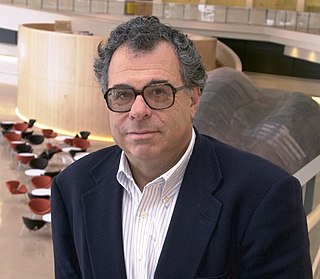
David Botstein is an American biologist who is the chief scientific officer of Calico. He was the director of the Lewis-Sigler Institute for Integrative Genomics at Princeton University from 2003 to 2013, where he remains an Anthony B. Evnin Professor of Genomics.
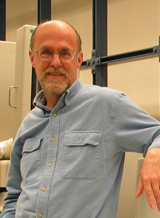
Webb Colby Miller is an American bioinformatician who is professor in the Department of Biology and the Department of Computer Science and Engineering at The Pennsylvania State University.
Anders Krogh is a bioinformatician at the University of Copenhagen, where he leads the university's bioinformatics center. He is known for his pioneering work on the use of hidden Markov models in bioinformatics, and is co-author of a widely used textbook in bioinformatics. In addition, he also co-authored one of the early textbooks on neural networks. His current research interests include promoter analysis, non-coding RNA, gene prediction and protein structure prediction.
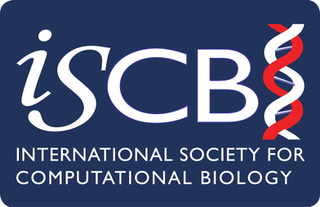
The International Society for Computational Biology (ISCB) is a scholarly society for researchers in computational biology and bioinformatics. The society was founded in 1997 to provide a stable financial home for the Intelligent Systems for Molecular Biology (ISMB) conference and has grown to become a larger society working towards advancing understanding of living systems through computation and for communicating scientific advances worldwide.
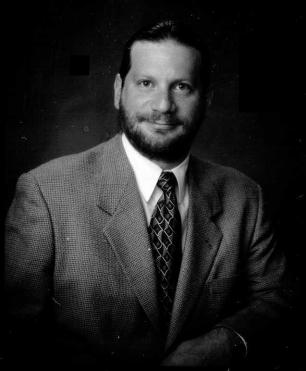
Lawrence E. Hunter is a Professor and Director of the Center for Computational Pharmacology and of the Computational Bioscience Program at the University of Colorado School of Medicine and Professor of Computer Science at the University of Colorado Boulder. He is an internationally known scholar, focused on computational biology, knowledge-driven extraction of information from the primary biomedical literature, the semantic integration of knowledge resources in molecular biology, and the use of knowledge in the analysis of high-throughput data, as well as for his foundational work in computational biology, which led to the genesis of the major professional organization in the field and two international conferences.
The ISCB Overton Prize is a computational biology prize awarded annually for outstanding accomplishment by a scientist in the early to mid stage of his or her career. Laureates have made significant contribution to the field of computational biology either through research, education, service, or a combination of the three.
The ISCB Accomplishment by a Senior Scientist Award is an annual prize awarded by the International Society for Computational Biology for contributions to the field of computational biology.
Trey Ideker is a professor of medicine and bioengineering at UC San Diego. He is the Director of the National Resource for Network Biology, the San Diego Center for Systems Biology, and the Cancer Cell Map Initiative. He uses genome-scale measurements to construct network models of cellular processes and disease.
Eran Segal is a computational biologist professor at the Weizmann Institute of Science. He works on developing quantitative models for all levels of gene regulation, including transcription, chromatin, and translation. Segal also works as an epidemiologist.

Aviv Regev is a computational biologist and systems biologist and Executive Vice President and Head of Genentech Research and Early Development in Genentech/Roche. She is a core member at the Broad Institute of MIT and Harvard and professor at the Department of Biology of the Massachusetts Institute of Technology. Regev is a pioneer of single cell genomics and of computational and systems biology of gene regulatory circuits. She founded and leads the Human Cell Atlas project, together with Sarah Teichmann.

Gary Stormo is an American geneticist and currently Joseph Erlanger Professor in the Department of Genetics and the Center for Genome Sciences and Systems Biology at Washington University School of Medicine in St Louis. He is considered one of the pioneers of bioinformatics and genomics. His research combines experimental and computational approaches in order to identify and predict regulatory sequences in DNA and RNA, and their contributions to the regulatory networks that control gene expression.
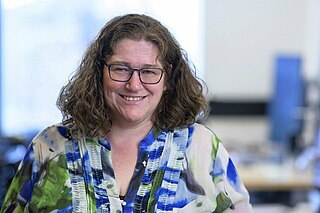
Dana Pe'er, Chair and Professor in Computational and Systems Biology Program at Sloan Kettering Institute is a researcher in computational systems biology. A Howard Hughes Medical Institute (HHMI) Investigator since 2021, she was previously a professor at Columbia Department of Biological Sciences. Pe'er's research focuses on understanding the organization, function and evolution of molecular networks, particularly how genetic variations alter the regulatory network and how these genetic variations can cause cancer.

Ziv Bar-Joseph is an Israeli computational biologist and Professor in the Computational Biology Department and the Machine Learning Department at the Carnegie Mellon School of Computer Science.

Curtis Huttenhower is a Professor of Computational Biology and Bioinformatics in the Department of Biostatistics, School of Public Health, Harvard University.

Janet Kelso is a South African computational biologist and Group leader of the Minerva Research Group for Bioinformatics at the Max Planck Institute for Evolutionary Anthropology. She is best known for her work comparing DNA from previous humans with those of the present.
The ISCB Innovator Award is a computational biology prize awarded annually to leading scientists who are within two decades post-degree, who consistently make outstanding contributions to the field, and who continue to forge new directions. The prize was established by the International Society for Computational Biology (ISCB) in 2016 and is awarded at the Intelligent Systems for Molecular Biology (ISMB) conference. The inaugural recipient was Serafim Batzoglou.
ISCB Fellowship is an award granted to scientists that the International Society for Computational Biology (ISCB) judges to have made “outstanding contributions to the fields of computational biology and bioinformatics”. As of 2019, there are 76 Fellows of the ISCB including Michael Ashburner, Alex Bateman, Bonnie Berger, Steven E. Brenner, Janet Kelso, Daphne Koller, Michael Levitt, Sarah Teichmann and Shoshana Wodak. See List of Fellows of the International Society for Computational Biology for a comprehensive listing.
Mona Singh is an American computer scientist and an expert in computational molecular biology and bioinformatics. She is the Wang Family Professor in Computer Science in the Lewis-Sigler Institute for Integrative Genomics and the Department of Computer Science at Princeton University. Since 2021, she has been the Editor-in-Chief of the Journal of Computational Biology.

Christophe Dessimoz is a Swiss National Science Foundation (SNSF) Professor at the University of Lausanne, Associate Professor at University College London and a group leader at the Swiss Institute of Bioinformatics. He was awarded the Overton Prize in 2019 for his contributions to computational biology. Starting in April 2022, he will be joint executive director of the SIB Swiss Institute of Bioinformatics, along with Ron Appel.
Laxmi Parida is an IBM Master Inventor and group leader in computational genomics at the Thomas J. Watson Research Center and Courant Institute of Mathematical Sciences in New York.











